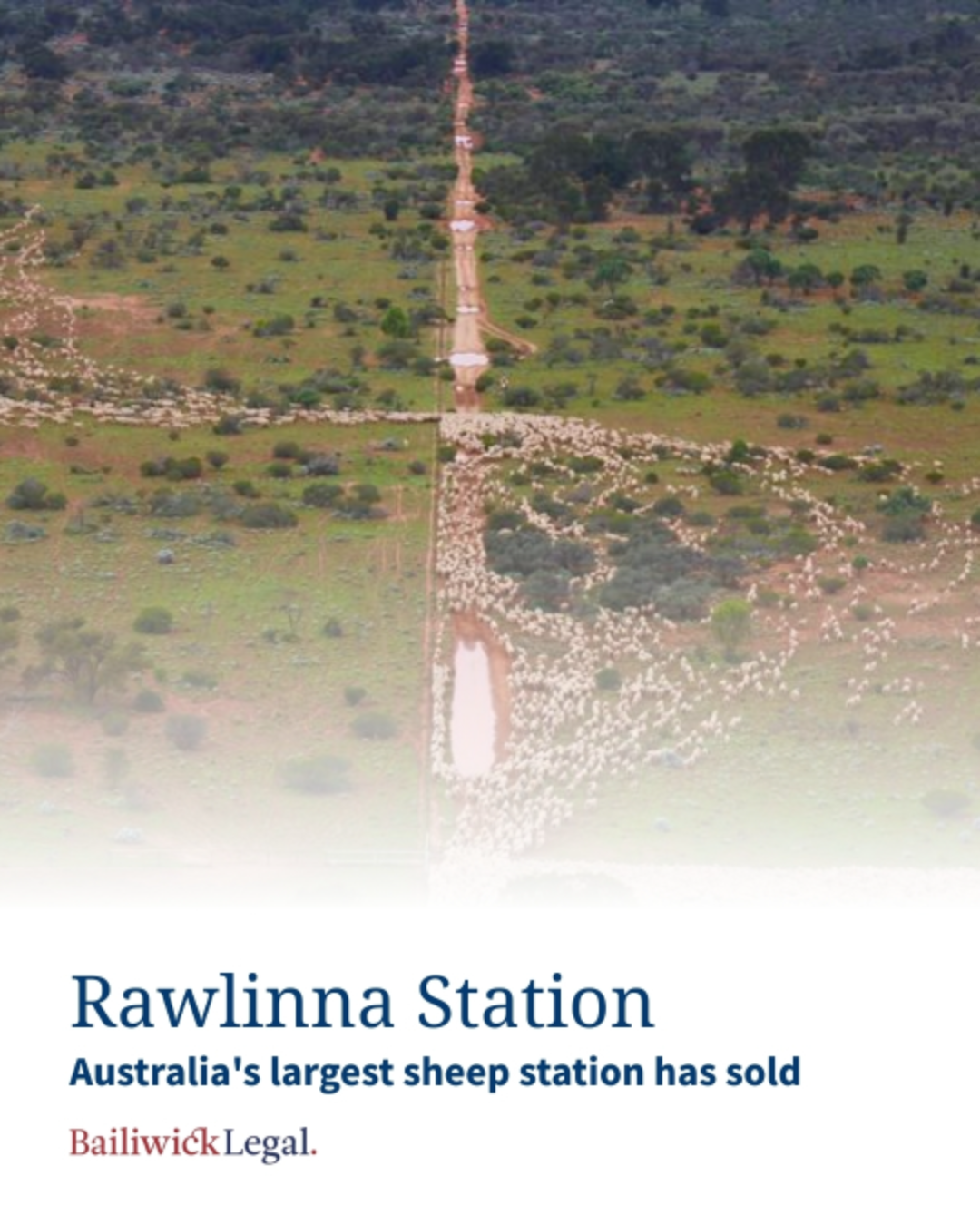New Fair Work Commission Rules - Minimum Rate of Pay for All Farm Workers across Australia
February 19, 2026
Author name
What are the Fair Work Commission’s new rules?
In what has been described as one of the most significant industrial decisions of modern times, the Fair Work Commission has ruled that workers on a piece rate must now be guaranteed a minimum wage under the Horticultural Award.
For decades many workers in the fruit and vege industries have been paid according to the amount of produce they harvest which is also known as a piece rate. However, those practices are set to change after the Commission’s recent ruling.
The ruling comes after the Australian Workers Union (AWU) lodged a claim with the Commission, arguing that every worker should be guaranteed a minimum casual rate, currently $25.41 per hour. The Commission "expressed the view that the existing pieceworker provisions in the Horticulture Award are not fit for purpose", and “do not provide a fair and relevant minimum safety net as required by the Act”.
Who do the new rules apply to?
The horticulture industry includes all fruits, vegetables, grains, seeds, hops, nuts, fungi, olives, flowers and other specialised crops (excluding broadacre field crops). Examples of employees covered by the Horticulture Award include:
- fruit or vegetable pickers;
- sorters and packers, including employees using machines and equipment;
- drivers of lorries, harvesters, forklifts and tractors; and
- employees performing inventory, store control and quality assurance/control.
The Horticulture Award also covers labour hire businesses and their employees who are placed with an organisation in the horticulture industry.
How will the rules work?
Prior to the ruling, if an employee was being paid under a piecework rate system, they may not necessarily receive the equivalent of the minimum wage. Typically, this applied to slower pickers who worked below the average of other pickers. Piece rates were used to incentivise workers but this concept may now be obsolete.
The new changes essentially act as a safety net so that all horticultural workers will be guaranteed a set minimum hourly rate. The piecework rates can still operate and be used by farmers but workers now have a second option and a safety net.
What are the implications on farmers?
The Full Bench of the Fair Work Commission has said that “the insertion of a minimum wage floor with consequential time recording provisions in the piece work clause is necessary to ensure that the Horticulture Award achieves the modern awards objective”.
However, federal agriculture minister David Littleproud suggested that “the ruling could mean Australians will be asked to pay higher prices for their produce, as the cost of producing that produce should be reflected at the checkout”.
The National Farmers' Federation have also raised concerns and said they oppose the changes arguing that ‘piece rates promote productivity and any change to the award could drive farmers out of business.’
The changes to the Award do not prevent farmers from using piecework agreements with their employees, but it is important that farmers are aware of the rules regarding piecework rates. The rules include:
- if an employer uses piecework rates to pay their employees, they should be able to demonstrate how they calculated their piecework rates;
- piecework rates must be set at the time a piecework agreement is made;
- a piecework agreement must be made before work starts under the agreement; and
- piecework rates must also be reviewed regularly.
By Matilda Lloyd (Paralegal)
If you would like more information about how to understand and use piecework agreements or how the above matters may affect your business, please contact us on (08) 9321 5451 or by email at
office@bailiwicklegal.com.au.
For further information about our legal services, please visit our website: https://www.bailiwicklegal.com.au/
The above information is a summary and overview of the matters discussed. This publication does not constitute legal advice and you should seek legal or other professional advice before acting or relying on any of the content.

Bailiwick Legal has been honoured to support Forever Wild over the past few years as they delivered one of the most significant conservation land acquisition programs undertaken in Western Australia. Our team assisted Forever Wild with the strategic purchase of four pastoral stations, Narndee , Boodanoo , Meeline and Challa , transactions that now connect three State Reserves and protect more than 12,000 square kilometres of land. To put that scale into perspective, the combined area is approximately five times the size of the ACT and nearly one-fifth the size of Tasmania . Navigating complexity at scale These were not straightforward property transactions. Each acquisition involved: Multiple pastoral leases Layered regulatory and approval pathways Significant operational and on-ground assets Numerous stakeholders across government, industry and land management Our role was to guide Forever Wild through this complexity with clarity, precision and confidence, ensuring each transaction progressed efficiently while managing risk and safeguarding long-term objectives. “ Forever Wild is creating a world-leading model for nature funding that demonstrates we can manage viable, working pastoral stations whilst also restoring and protecting local ecological flora and fauna, and engaging and supporting Indigenous people and local communities. Complex & challenging, but this initiative could literally change the world .” Jessica Brunner - Director, Bailiwick Legal A growing and evolving legal landscape Large-scale conservation acquisitions sit within an emerging and increasingly complex legal field , intersecting land tenure, pastoral regulation, environmental frameworks and commercial considerations. These matters demand a deep understanding of both the legal mechanics and the practical realities of operating in regional and remote Australia. Our team’s experience in agribusiness, pastoral land transactions and regulatory approvals allowed us to support Forever Wild at every stage, from strategic structuring through to completion. Proud to support leadership in nature finance Forever Wild is widely recognised as an industry leader and a steadfast advocate for nature finance initiatives , helping pave the way for greater accessibility and innovation in conservation funding and land stewardship. We are proud to have contributed our relationships, expertise and practical legal insight to help Forever Wild achieve its vision, and to have played a role, however small, in shaping a groundbreaking future for conservation in Australia. At Bailiwick Legal, we value the opportunity to work alongside organisations that are thinking long-term, acting boldly, and creating outcomes that extend well beyond the transaction itself. For assistance with all of your agribusiness needs, contact Bailiwick Legal on 08 9321 5451 or email office@bailiwicklegal.com.au For further information about our legal services, please visit our website: https://www.bailiwicklegal.com.au The above information is a summary and overview of the matters discussed. This publication does not constitute legal advice and you should seek legal or other professional advice before acting or relying on any of the content.

Bailiwick Legal Advises on Landmark Acquisition of Rawlinna Station by Consolidated Pastoral Company
Bailiwick Legal is proud to have acted for Consolidated Pastoral Company (CPC) in its successful acquisition of Rawlinna Station , Australia’s largest sheep station, located on the remote Nullarbor Plain in Western Australia. Spanning over 1 million hectares and running approximately 30,000 sheep , Rawlinna is an iconic pastoral asset with a rich legacy, having been held by the MacLachlan family’s Jumbuck Pastoral Company since its establishment in 1962. The sale marks the first change of ownership in over six decades and was finalised following formal approval from the Western Australian Government for the transfer of the pastoral leases. This transaction involved navigating: The transfer of three separate pastoral leases Coordination across multiple vendor entities Consideration of livestock and operating assets Fulfilment of regulatory and compliance requirements, including WA lease approval processes Bailiwick Legal is a boutique agricultural and regional law firm , proudly based in Perth and Bridgetown, Western Australia. Our role in this acquisition demonstrates that deep sector knowledge, local insight, and personalised legal support are crucial for agribusiness clients managing complex, high-value transactions. Our team, led by our regionally-based solicitor, Matilda Lloyd, provided end-to-end legal and strategic support, including: Due diligence on land tenure and operating assets Contract negotiation and preparation Advice on regulatory approvals and compliance Strategic coordination with CPC’s internal and external stakeholders to ensure a smooth and timely settlement We are honoured to have supported CPC in this milestone acquisition and look forward to watching Rawlinna’s next chapter unfolds. At Bailiwick Legal, we believe that regional expertise, deep industry knowledge, and relationship-based service remain essential to agribusiness success, no matter the scale. Congratulations to all parties involved, including the MacLachlan family, whose stewardship of Rawlinna leaves a lasting legacy in Australian agriculture. – The Bailiwick Legal Team Working alongside agribusinesses to grow, transition, and thrive . For assistance with all of your agribusiness needs, contact Bailiwick Legal on 08 9321 5451 or email office@bailiwicklegal.com.au By Matilda Lloyd (Associate) For further information about our legal services, please visit our website: https://www.bailiwicklegal.com.au The above information is a summary and overview of the matters discussed. This publication does not constitute legal advice and you should seek legal or other professional advice before acting or relying on any of the content.











